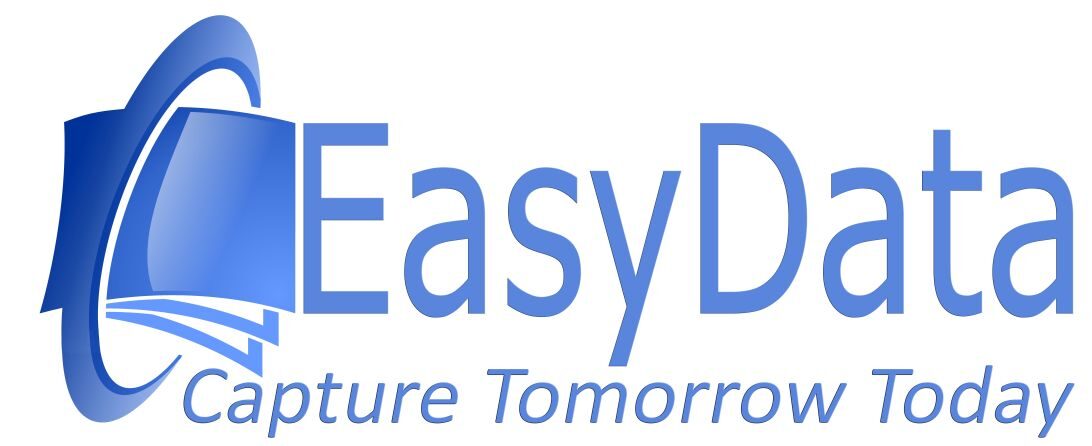Custom software that truly reduces business costs
Stop adapting your business to software,
let software adapt to your organization and needs

Why choose custom software?
Custom software is about a simple principle: technology adapts to your workflow, not the other way around. You keep your proven processes and efficient way of working, but without the daily frustrations and time waste. Manual errors disappear, tasks that took hours become minutes, and your team can focus on work that truly matters.
While standard software forces you to adapt your organization to what the system can do, you now get software that does exactly what your business needs.
Today’s digital transformation places different demands on organizations. Companies need solutions that integrate seamlessly with existing systems and can grow with changing market demands.
The evolution of software development
Custom software is becoming increasingly accessible. Programmers no longer have to manually write extensive pieces of code – AI takes over much of that work. This revolutionary development makes it possible to realize solutions faster and more efficiently.
EasyData’s expertise: 25+ years of experience
EasyData has been developing custom software for over 25 years with developers both in the Netherlands and internationally. To leverage this expertise optimally, we established our own office in Armenia.
This strategic choice gives us the best of both worlds: European quality standards and project management combined with access to top talent at competitive rates. Our teams work seamlessly together across time zones, allowing us to develop faster without compromising on quality.

Our custom software specializations
EasyData specializes in various cutting-edge technologies that shape the future of business automation:
🤖 Artificial Intelligence (AI)
We develop intelligent systems that learn from your data and processes. Our AI solutions recognize patterns in documents, predict trends in your business operations and automate complex decision-making processes. Think of invoices that process themselves, contracts that are automatically analyzed for risks, or systems that predict when machines need maintenance. By applying machine learning to your specific business situation, we create software that becomes increasingly smarter.
⚡ Robotic Process Automation (RPA)
RPA takes over the repetitive, time-consuming tasks from your employees. We automate workflows such as transferring data between systems, generating reports, and processing standard requests. Our custom RPA solutions work 24/7 precisely tailored to your organization. The result? Your employees can focus on truly important work while routine tasks run automatically. From email processing to complex approval processes.
📊 Data Capture & Analysis
Transform unstructured data into valuable business intelligence. Our custom Data Capture solutions scan and interpret documents, extract relevant information and present it in clear dashboards. Whether it’s digitizing paper archives, analyzing incoming emails, or real-time monitoring of business performance, our custom software ensures you always have the right information to make data-driven decisions.
📄 Document intelligence projects
Documents are the backbone of every business, but manual processing costs enormous amounts of time. Our document intelligence solutions understand the content, structure and context of your documents. We automatically classify incoming mail, validate invoice data against contracts, and ensure that critical information is never lost. Whether you’re dealing with legal documents, technical specifications, or customer service tickets, our custom software understands your content and acts accordingly.
Proven custom products as a starting point
Custom software solutions often originate from our successful base products. This offers direct advantages for you as a potential customer:
📄 PDFCommunicator
A powerful tool for automated PDF processing that can create PDFs with XML data and conversely interpret incoming PDFs.
From invoices and contracts to quotes and technical specifications, PDFCommunicator understands what’s in documents and acts on it. The system automatically extracts relevant data, validates information against existing databases and routes documents to the right departments.
By adapting the existing functionalities to your specific workflows, we can realize a fully integrated solution within weeks that perfectly fits your document processes.
🔍 EasySeparate
Advanced document separation and recognition technology that automatically recognizes document types and intelligently separates them from each other.
EasySeparate analyzes the structure, content and context of documents to correctly categorize them and route them to the right systems or departments. Whether you work with construction plans, legal files, medical reports or financial documents, our AI understands what it sees and takes the right action.
The system works completely in the background and is easy for users to adjust, making manual sorting unnecessary.
🚀 ESV Platform
The ESV Platform is our most versatile solution, an intelligent data processing environment that adapts to any sector and any process.
Unlike rigid standard software, the platform grows with your organization and combines powerful machine learning algorithms with intuitive dashboards. This allows even non-technical employees to perform complex data analyses without IT support. From inventory optimization and customer segmentation to process monitoring and compliance reporting, the ESV platform learns from your data and becomes increasingly smarter.
Customers use it for automatic fraud detection, document classifications and real-time business intelligence.
👥 Human in the Loop Interface
Intelligent interfaces that find the perfect balance between human expertise and automated efficiency.
This unique approach ensures that critical decisions always remain under human control, while routine work is fully automated. The system presents complex situations in an understandable way to employees, who can then quickly intervene where human judgment is needed. Perfect for processes in healthcare, legal sector or financial services where 100% certainty is required.
Employees maintain their expertise role while the software does all the preparatory work and only escalates the crucial moments.
The advantage for you: By using these proven base products, the lead time is significantly shorter.
We can demonstrate convincing results free of charge in a Proof of Concept (PoC) phase.
Transparent Pricing for Custom Software
No surprises, no hidden costs. At EasyData you get complete clarity about your investment in custom software upfront.
What determines the investment?
📊 Project Scope
Number of desired functionalities, integrations with existing systems and the scope of your automation requirements.
🔧 Complexity
Degree of customization, AI components and specific technical challenges of your business processes.
⏱️ Implementation Time
Desired lead time, project urgency and availability of your team for testing and feedback.
🎓 Support
Level of training, documentation, knowledge transfer and aftercare your organization needs.
Our Transparency Guarantee
- ✓ Free preliminary research: Free analysis of your current processes and automation possibilities
- ✓ Fixed price quote: No surprises during the project, we make clear agreements upfront
- ✓ Phased payments: Pay per delivered milestone, experience results before you invest!
- ✓ No hidden costs: All costs clearly communicated upfront in detailed quote
Indicative Price Range
🚀 Simple Automation
€3,500 – €35,000
Document processing, simple workflows, basic integrations with existing systems.
⚙️ Medium Projects
€35,000 – €50,000
More complex automation, multiple system integrations, custom dashboards and reports.
🤖 Complex AI Solutions
€50,000 – €150,000+
Advanced machine learning, predictive analytics, enterprise-level integrations.
Prices are indicative and based on average projects in 2022-2025. Final pricing follows after analysis of your specific situation.
The power of transparency
After 25+ years of experience, we know that uncertainty about costs is the biggest barrier to digital transformation. Many companies postpone automation because they have no idea what it will cost.
Our upfront pricing helps you make an informed decision. You not only get a price indication, but also insight into why certain functionalities cost more or less.
Schedule your free consultation: During this conversation we analyze your specific situation and provide a customized price indication. No obligations, just clarity about what your project will cost.

🌍 From Code to Conversation
Most companies still think in terms of “implementing software.”
But reality has fundamentally changed. AI systems are now evolving faster than we can deploy them.
Custom Software that learns by itself
Where we used to spend months programming specific rules, we now create systems that train themselves on your business data. The difference? A traditional system does what you program. An AI system understands what you mean.
The limitation of standard software
Standard software is built for average companies with average processes. But AI advantages come precisely from the unique characteristics of your organization, your own unique data, processes and market opportunities. Custom software therefore becomes not only more flexible, but fundamentally smarter.
Software that thinks like your business works
We analyze your specific business processes, develop working solutions and guide until systems function reliably. Our clients experience complete answers to their automation challenges without needing additional searches. GDPR-compliant implementation from European data centers.
Ready to go from manual chaos to smart automation?
Join 500+ organizations who have already automated their document processing. Experience for yourself how 90%+ accuracy and significant time savings transform your organization – operational within 8 weeks.
🏆 Custom software experts, at your service!
25+ years of experience – Pioneers in document automation since 1999
No vendor lock-in – Open standards and the source code is your property
Transparent pricing – No hidden costs or unclear licenses
Frequently asked questions about custom software
How long does custom software development take?
Development time for custom software depends heavily on complexity, but EasyData can often deliver faster than traditional developers thanks to our unique approach. By using proven base products like PDFCommunicator, EasySeparate and the ESV Platform, we can usually deliver a working solution within 4-8 weeks.
What are the costs of custom software?
The investment depends on complexity and desired functionalities. Through our efficiency and reuse of existing components, we can maintain very competitive rates. We always offer transparent price quotes and a free consultation to discuss possibilities.
Can I expand the software later?
Absolutely. Our software is developed modularly, making extensions and modifications easily possible. You invest in a growing solution that grows with your organization and changing market needs.
Is custom software secure?
Yes, security comes first. We apply strict security protocols, encryption and regular security audits. All solutions comply with GDPR and other relevant legislation. Want to use our ISO-certified data center? In that case, you maintain full control over your data within European infrastructure.
What distinguishes EasyData from other providers?
Our unique combination of 25+ years of experience, international development capacity, proven base products and focus on knowledge transfer ensures faster, more affordable and better solutions. Additionally, we offer complete transparency and European data sovereignty – your data never leaves the EU, unlike solutions from American cloud providers subject to the US Cloud Act.
Do you offer training and support?
Yes, we believe in knowledge transfer. We offer extensive training on the code and systems we develop. This ensures that your IT team fully understands the software, can make small adjustments independently and makes optimal use of all functionalities.
Disclaimer: All mentioned results are based on internal analysis of automation projects, executed between 2022-2024. Individual performance varies per organization factors such as process maturity, data quality and implementation scope. EasyData calculates realistic expectations specific to your situation during the free process audit. We also offer you a PoC to experience for yourself without investment which results apply to your organization. For detailed case studies and methodology, please contact us.


